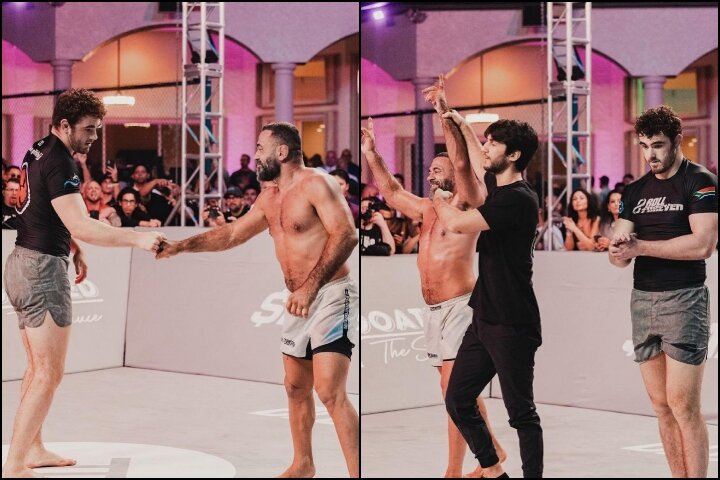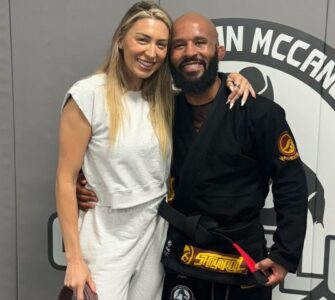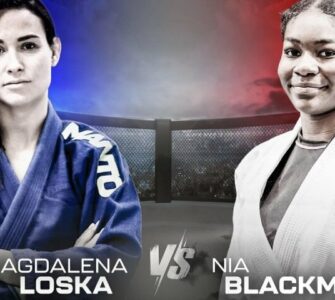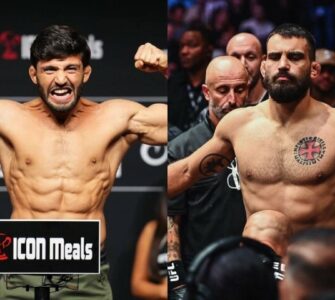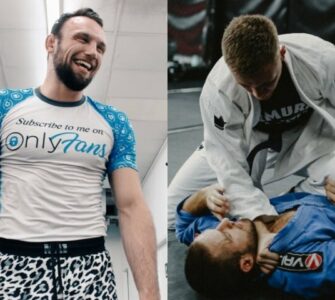In a recent episode of the Mayn Idea Podcast, 2 x ADCC bronze medalist and UFC vet, Vagner Rocha, a renowned Jiu-Jitsu black belt, shared valuable insights on how to spar with larger teammates. His advice is not only crucial for those looking to enhance their training but also highlights the importance of approaching Jiu-Jitsu with a strategic mindset.
Training with Larger Opponents
Rocha emphasizes the importance of stepping out of one’s comfort zone and facing the challenge of training with bigger people. He advises, “Do it in a safe way but also make your Jiu-Jitsu Elevate.” The key is to become comfortable with uncomfortable situations. He suggests having an upfront conversation with larger training partners: “I want to roll with you, but I’m scared that you’re going to hurt me… I want to understand how to roll with you so that I could get better.”
This approach is not just about self-protection; it’s about understanding the dynamics of working with someone larger and stronger. Rocha explains, “If I don’t understand how you move, I can’t defend myself.” He recommends starting in the worst-case scenario with a larger partner to learn how to escape and defend effectively.
Drilling vs. Rolling in Training
A significant point Rocha brings up is the comparison of Jiu-Jitsu training to other professional sports. He observes, “I feel like most Jiu-Jitsu players don’t train Jiu-Jitsu like as if it was another sport.” He notes that in other sports, athletes spend time improving specific skills and attributes, whereas in Jiu-Jitsu, there’s a tendency to focus only on sparring. This, according to Rocha, can lead to stagnation: “A lot of guys just stay tough; they don’t get good, they stay tough.”
Rocha stresses the importance of a more structured approach to training, similar to how professional athletes in other sports train. He points out, “Drilling is the instrumental part of skill development,” and adds, “It’s about separating everything that you need to learn and then isolating it and making sure that it’s isolated in training.”
Advice for Instructors and Practitioners
Rocha’s insights extend to Jiu-Jitsu instructors as well. He argues that many instructors fall into a routine of teaching that doesn’t necessarily contribute to the rapid improvement of their students. “Most Jiu-Jitsu instructors become instructors because they stick around long enough,” he says. This often leads to a traditional format of warm-ups, drills, rolls, and then going home, which might not be the most effective way to learn.
He advocates for a more nuanced approach to teaching and learning Jiu-Jitsu, one that involves isolating specific skills and scenarios for focused improvement. Rocha’s vision is to see every hobbyist in every gym get really good, which in turn raises the bar for the professionals.
Vagner Rocha’s advice on training with larger opponents in Jiu-Jitsu is a blend of practical tips and a call to rethink the training methodology. His approach emphasizes safety, understanding, and strategic improvement, which can be beneficial for practitioners of all levels. By adopting a more structured and focused approach to training, Jiu-Jitsu practitioners can elevate their skills and adapt better to challenging scenarios on the mat.

